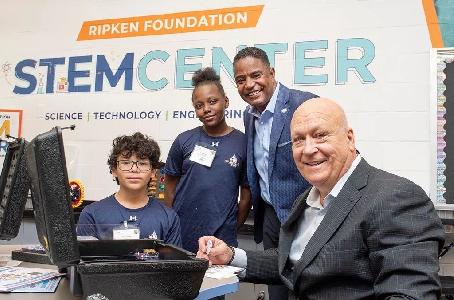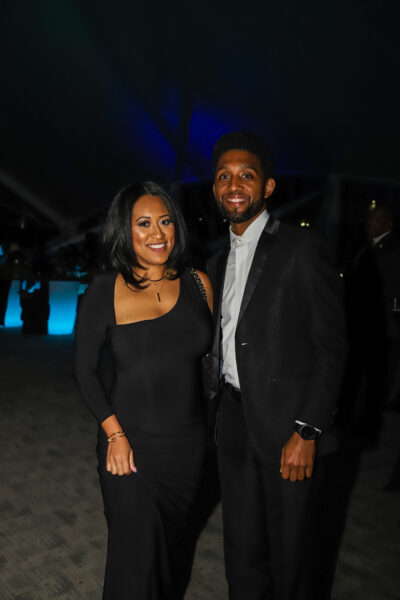As OrderUp heads into the future as a part of Groupon, the food delivery company is looking to grow in Baltimore. And they might be hiring soon.
“The best news for Baltimore is that we’re going to be able to keep our brand and keep our headquarters here,” OrderUp CEO Chris Jeffery told CityBizList and Technical.ly Baltimore in a recent video interview.
“We’ll continue to grow our presence here and hire more folks here — more talented folks here — and continue to build up this market as an OrderUp market,” he said. “Then, Groupon has plans for building up major metros with their resources.”
Groupon, the Chicago-based publicly-traded company known to most for their emailed deals, paid $69 million in cash for OrderUp. According to SEC documents, the deal could be worth as much as $89 million after valuation of OrderUp’s assets.
Food and beverage is one of the most popular categories in our marketplace.
Like many such deals, it was made possible by a cross-section of relationships, timing and market analysis.
“I actually had known a guy by the name of Jason Harinstein, who’s the SVP of Corporate Development at Groupon, and I had known him for a while now,” Jeffery said. “He reached out and said, ‘Hey, they’re interested in this space.’ We had some initial conversations, and one thing led to the next.”
Food ordering from restaurants has long been a phone-based business. But instead of call-in and take-out with delivery saved for the easiest-to-carry items like pizza, it’s quickly transitioning to an app-based, all-delivery model.
Online-based orders from brick-and-mortar restaurants have quickly approached the number of phone orders over the last five years, according to data gathered by NRD. From May 2014-May 2015, nearly a billion phone orders were placed. During the five-year period, phone orders also dropped from 1.4 billion in 2009-2010 to 1 billion.
Along with more orders, the online delivery market also has more players now. GrubHub, which merged with Seamless in 2013, is often seen as the biggest company. OrderUp was joined by Homejoy, Caviar and DoorDash, as well as recent entries from big players like Uber and Amazon. Overall, food delivery is seen as a $70 billion market.
At the heart of Groupon’s acquisition of OrderUp is a belief that the two companies can combine to compete in this fast-growing space.
On their own, OrderUp’s strategy was to go after second- and third-tier markets, including college towns. Being part of Groupon provides the opportunity to scale in such a way that will also enable OrderUp to look at expanding into major metropolitan areas where GrubHub currently feasts.
“This deal is about combining OrderUp’s operational capabilities with Groupon’s significant size and scale,” said Bill Roberts, Groupon’s head of global communications.
OrderUp will remain a standalone brand, and will likely be promoted across Groupon’s platforms.
Groupon already has 25 million customers, but the company is taking its first dip into food ordering following the OrderUp acquisition.
“We’ve long offered takeout and delivery redemption options through deals, and we saw a huge demand from our merchants and customers to offer this type of service on a wider scale,” Roberts said. “Food and beverage is one of the most popular categories in our marketplace.”
Those operational capabilities include include technology that connects consumers, restaurants and drivers, and allows for mobile ordering and tracking. The company also has an existing presence in about 40 cities (They added Cincinnati this week), and a fleet of drivers who are independent contractors in each, in the Uber mold.
The Groupon acquisition is just the latest stage for OrderUp, which traces its roots to State College, Pa., where cofounders Chris Jeffery and Jason Kwicien founded an online menu company called LionMenus.com while students at Penn State in the early aughts. OrderUp, initially called LocalUp, was founded in Baltimore in 2009. Initially bootstrapped, the company launched a digital franchising model in 2013, which Jeffery said the company has since moved away from for new locations.
Visible and rapid growth came over the last year-and-a-half, especially following a $7 million Series A led by the Steve Case-run Revolution Ventures. Along the way, it hired one of the technologists behind the Domino’s Pizza Tracker, Marriott’s former senior counsel and a data scientist who worked at Microsoft and Burger King.
Through this next phase, the company will remain in Baltimore. OrderUp is keeping its offices in the Can Company building (the former home of Millennial Media), where 80 of the company’s roughly 130 employees work. Company officials said no layoffs are expected following the acquisition.
Jeffery said OrderUp is likely to continue hiring. He said the company already found a lot of great tech workers here over the last year, and looks to continue doing so.
“There’s a lot of great talent here,” he said. “It’s kind of one of those cities that no one has paid attention to. Hopefully they’re starting to now.”
Join the conversation!
Find news, events, jobs and people who share your interests on Technical.ly's open community Slack

Baltimore daily roundup: Find your next coworking space; sea turtle legislation; Dali raided and sued

Baltimore daily roundup: Johns Hopkins dedicates The Pava Center; Q1's VC outlook; Cal Ripken inaugurates youth STEM center

Baltimore daily roundup: Scenes from an epic Sneaker Ball; Backpack Healthcare in Google AI accelerator; local tech figures' podcast


